Recently, I was lucky enough to go to a conference celebrating the Rainforest Alliance’s 25th anniversary. I’m not usually the person in the office who looks after our relationship with the organisation, so learning about what they had achieved since their beginning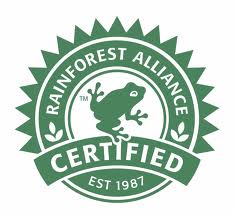 s in 1987, and their visions for a sustainable future, was a welcome learning experience for me. The list of invitees was impressive, including several big shots within the corporate world of Kraft, Nestle, Marks and Spencer and Costa among others, and left me with the impression that I was rather a small fish in a big pond (or a small tree in a large Rainforest…).
s in 1987, and their visions for a sustainable future, was a welcome learning experience for me. The list of invitees was impressive, including several big shots within the corporate world of Kraft, Nestle, Marks and Spencer and Costa among others, and left me with the impression that I was rather a small fish in a big pond (or a small tree in a large Rainforest…).
To give you a potted history of the Rainforest Alliance’s work through the years, their main aim in the beginning was to conserve biodiversity by transforming land-use practices and changing consumer behavior. Their system of Certification of farms and fores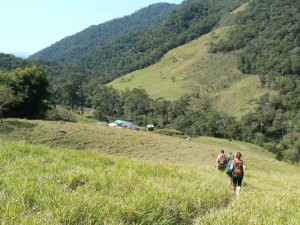 ts – RA helped to establish the Forest Stewardship Council. Think you don’t know the FSC? Check your orange juice packaging, or the toilet roll you buy. Their logo is instantly recognizable, once you know where to look – has led to tangible benefits for ecosystems and human populations. In the Minas Gerais region of Brazil, the ape population density is significantly higher in FSC certified forests. That’s a win for ecology! Elsewhere, yields in certified cocoa farms are higher than in non-certified farms, which have lead to an improved productivity of 30-40%, and therefore an increased income. This incentivizes farmers, who have better access to healthcare, higher pay and a better quality of life.
ts – RA helped to establish the Forest Stewardship Council. Think you don’t know the FSC? Check your orange juice packaging, or the toilet roll you buy. Their logo is instantly recognizable, once you know where to look – has led to tangible benefits for ecosystems and human populations. In the Minas Gerais region of Brazil, the ape population density is significantly higher in FSC certified forests. That’s a win for ecology! Elsewhere, yields in certified cocoa farms are higher than in non-certified farms, which have lead to an improved productivity of 30-40%, and therefore an increased income. This incentivizes farmers, who have better access to healthcare, higher pay and a better quality of life.
I could go on and on. That would, however, mean glossing over the more uncomfortable subject of the work that is left to do. Recently the Rainforest Alliance launched their ‘Follow the Frog’ campaign (watch the below hilarious video for the finer details), which directly targets consumer attitudes towards responsible buying. Ie, what can WE do, actively, and what should we do? Is it reasonable to believe that, instead of buying your usual coffee/tea/chocolate, if you purchase a bag of coffee with a Frog on it the world will suddenly undergo a significant change? I’m not sure about that. But what if 50 people did it? And then 100? These are the kind of large-scale behavior changes that can engender positive repercussions.
If there is one thing that I learned from the conference, it’s that big businesses such as the aforementioned powerhouses have a responsibility to offer the right things, rather than expecting customers to buy them. I rather enjoyed the thoughts of one of the ladies on the panel, who impressed upon her audience that the value of kindness was going to be good business in the future. Consumers are tending towards better products, better service, a better ethos, and going away from the value of ‘more’ that was so predominant in the Noughties. So why not transfer this sentiment to tourism too?
Indeed, surely kindness should be one of the most important values in an industry that connects many millions of people across the world each year, forcing disparate cultures into contact and bringing many tourists into the world’s most fragile ecosystems. As a tour operator, we hold a role of great responsibility within the industry, and it is our duty to ensure that our expeditions benefit the host communities so that these destinations retain their natural and cultural treasures for future generations to enjoy. The tourism section of Rainforest Alliance is small but growing. To be a member of the international community of tour operators, TOPS (Tour Operators Promoting Sustainability), we signed an agreement committing to encourage  our suppliers out in country (lodges, hotels, restaurants etc) to become verified and to give priority to certified and verified suppliers always. It is, admittedly, really difficult to police and enforce this, but like the directors and officers at companies such as Costa and Marks & Spencer, we realize that a big change is necessary to get long-term results.
our suppliers out in country (lodges, hotels, restaurants etc) to become verified and to give priority to certified and verified suppliers always. It is, admittedly, really difficult to police and enforce this, but like the directors and officers at companies such as Costa and Marks & Spencer, we realize that a big change is necessary to get long-term results.
I have had many things to think about after the conference, as both an employee of an organization whose mantra is to be responsible, and also as a consumer whose duty it should be to buy responsibly. Perhaps the best thing I learned was the phrase ‘Net Positive’ (never heard that before). It means that we are striving not to be ‘less bad’, not just to dilute negatives with one positive action, but to strive to produce 0 carbon; 0 waste; to buy food that you know has come from sustainable sources, whether from Waitrose or from your local butcher; to research your holiday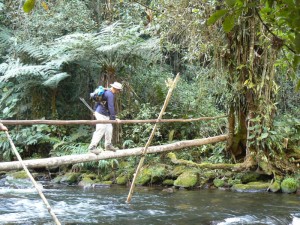 s and ensure that they are being operated responsibly; to try and make real, verifiable changes to human life with your actions.
s and ensure that they are being operated responsibly; to try and make real, verifiable changes to human life with your actions.
No pressure then!
To learn more about all our charity challenges, and find out how else we get involved with responsible tourism you can read our Responsible Tourism policy here, and you can visit our website at www.charitychallenge.com . To keep up to date on all our challenge news, you can subscribe to this blog by clicking on the orange RSS button, you can also enter your email address into the adjacent box to subscribe to our mailing list.

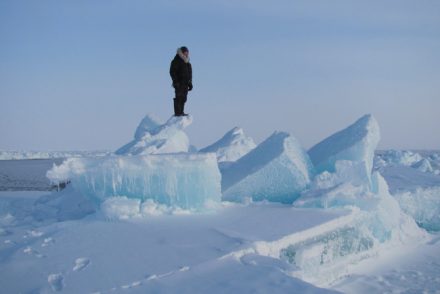
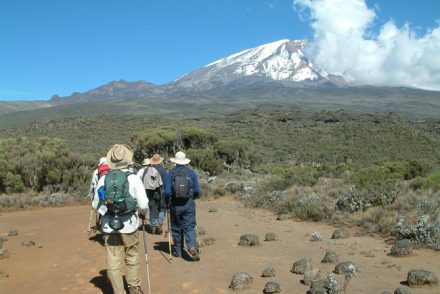

No Comments